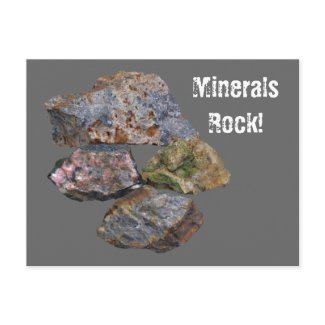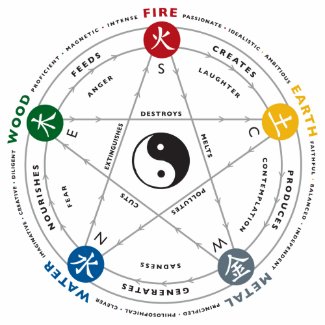Some of us get salt cravings once in a blue moon whilst for others it’s a commonly occurring craving. It may express itself as an overwhelming desire for ready-salted chips, salty popcorn or even olives. With others you may find yourself salting everything in sight! Either way, what does craving salty foods say about you?
- – -
Possible causes of salt cravings
Behind every craving is a story. All cravings are your body’s way of telling you something. So what is a salt craving telling you?
There are many possibilities for what a salt craving means and nine possible causes are discussed below. In every particular person’s case there may be one or more factors driving the body’s call for salt.
1. Salt cravings may indicate that your recent salt intake is lower than usual
If you’re consuming less salt than your body is used to, you may experience salt cravings. For example, if you’re used to eating 4 teaspoons of salt a day (which could well happen even if you aren’t aware of it because there is so much hidden salt in many foods), and you have a day when you’ve only had 1 teaspoonful, you may start craving something salty. This happens regardless of the fact that 1 teaspoon of salt a day is more than enough to meet our body’s requirements for sodium.
What happens here is that over years of eating a high-salt diet, the body and tastebuds become accustomed to a certain amount of salt. When this habitual (albeit excessive) salt intake is not met, your body notices this and lets you know by creating a craving. It’s a bit like needing a “salt fix” and indeed some do call this type of craving a side effect of “salt addiction”.
Treatment for salt cravings of this kind:
You can retrain your body to get used to eating lower-salt diets. During the adjustment period, salt cravings often occur, but if you don’t give in to them, eventually the body gets used to lower salt levels and stops creating such frequent salt cravings. (1)
- – -
2. Stress increases salt cravings
Researchers have found that craving salt could be a sign of stress. (2,3)
How can stress cause salt cravings? It seems that the connection is that both salt-levels and stress are largely controlled by the adrenal glands. The adrenals produce several hormones including the stress hormones (adrenaline and cortisol) and also the salt-controlling hormone, aldosterone.
There are a few possible theories about how stress may boost salt cravings:
- Theory 1: Normally, your adrenal glands produce aldosterone when your body needs to conserve sodium because aldosterone’s role is to prevent sodium from being lost in your urine. Stress stimulates the adrenal glands to produce stress hormones, but in the process of activating the adrenals, stress also stimulates the production of other hormones. Stress and anxiety have been found to increase aldosterone production. (4) This likely means that the more stressed you are, the more aldosterone you have in your body, and so the more sodium it retains. My theory is that a similar process occurs to that when people are accustomed to a high salt intake in their diet. It may be possible that the body gets used to a higher stress-caused sodium-level. In someone who is often under stress, when there is a pause in life’s stresses, their sodium levels decrease beneath their customary elevated levels. The body may notice this drop and try to return it to that high usual state by getting you to eat more salt, thereby creating salt cravings.
- Theory 2: Consuming high levels of salt are known to reduce stress hormone levels. (5) It’s possible that in an attempt to return the body to a calmer state, the body creates salt cravings to reduce the stress hormone levels. What’s more, elevated sodium levels in the blood were found to increase the production of another hormone, oxytocin which is a powerful anti-stress hormone. (5)
- Theory 3: In constant stress the adrenal glands are continuously being worked very hard to produce more and more stress hormones. There comes a point when the adrenal glands become tired and although the need for adrenal hormones still exists, they can no longer produce them as we need because they are simply exhausted. This state is called adrenal exhaustion or adrenal fatigue resulting in adrenal insufficiency, and it means that amongst other adrenal hormones, aldosterone production is reduced. With aldosterone no longer able to retain sodium levels in the body, your body excretes more sodium than usual, which means you need more sodium than usual to maintain your body’s needs. Salt cravings occur to compensate for all the sodium the body’s low aldosterone levels are unable to keep hold of.
A good clue that stress may be a driving force behind your salt cravings is if you live a fast-paced, hectic life, or if you have a tendency to worry, or if you notice that you crave salt in direct response to a stressful activity.
Treatment for salt cravings of this kind:
Taking care to be as relaxed as possible should eliminate salt cravings if this is the driver behind the craving. Exercise, meditation, conscious thinking, and utilizing other relaxing activities can only be beneficial in any case.
If you are under a lot of stress you can help nourish your adrenal glands and ease the physiological stress on your body by eating plenty of protein, vitamin C
, vitamin B5
and magnesium
.
- – -
3. Other adrenal problems behind salt cravings
Whilst stress can put some strain on the adrenals, potentially generating salt cravings, other adrenal problems also create salt cravings. These conditions include the rather rare Addison’s disease where your adrenals are unable to make aldosterone, meaning that you are unable to retain salt and as a result you constantly have salt cravings. (6) Note that this is rare and is unlikely to be behind most people’s salt cravings.
- – -
4. Loss of sodium and other electrolytes causing salt cravings
There’s a group of minerals called the electrolytes, and sodium is within this group. The reason these minerals are lumped together is because they have common functions and they are often also lost from the body together. There are several ways you can lose electrolytes:
- Electrolyte loss in sweat: Electrolyte loss can actually be seen in people who have perspired profusely. It’s seen as white salty rings under arms or on backs and is most visible on dark clothes where sweat salts have precipitated. In extreme cases heavy sweating can lead to dehydration, and for this reason some books say that dehydration causes salt cravings.
- Electrolyte loss through vomiting
- Electrolyte loss through diarrhoea.
People who have lost electrolytes through prolonged episodes of any electrolyte-depleting conditions may crave salt as their body is calling to replenish their electrolyte stores. (7) After a serious bout of any of these conditions, it may be helpful to have an electrolyte-rich supplement such as Allergy Research Balanced Electrolyte Concentrate and remember to also top up your body’s fluid levels by drinking water.
- – -
5. Other mineral deficiencies can manifest as salt cravings
In nature, unrefined salt is not only a source of sodium, it also contains many other minerals. Some say that unrefined natural sea or rock salt contains up to 60 different minerals. (8) Our cravings for salty flavors may therefore reflect a deficiency and a need in your body for any one of these minerals that occur naturally in salt. (9)
To solve any potential mineral deficiencies, you can ensure you eat a wholesome diet full of mineral-rich, unrefined, unprocessed, fresh foods. Make sure you substitute any salt you do use to a more mineral-rich unrefined salt like Himalayan salt and Celtic Sea Salt
. You can also supplement your diet with a good multivitamin-mineral complex like Nature’s Plus: Source Of Life
or Natures Plus Nutri-Genic Multi for Sensitive People
.
Particular mineral deficiencies that may lead to salt cravings include:
- Magnesium
(2)
- Calcium
- Zinc
- Iodine – Iodine is needed to make thyroid hormones, and low thyroid hormone levels (often caused by low iodine levels) have been correlated with salt cravings. (2) A good source of iodine is a small amount (a few short strips) of rehydrated wakame seaweed
which you can add to any dish including soups, vegetables and salads.
- – -
6. Low moods, Low serotonin and low protein levels may lead to salt cravings
Some researchers have noticed that low levels of “happy hormone”, serotonin, increase cravings for salt. Serotonin is a proteinaceous hormone, so consuming inadequate amounts of protein may mean that insufficient amounts of serotonin are made. This can contribute both to low moods and salt cravings. (2, 10)
Why would low serotonin levels trigger salt cravings? The answer to this is not clear but one possible connection may be that salt appears to have an anti-depressant effect by triggering off pleasure zones in the brain. The exact mechanism is yet to be elucidated but salt does seem to stimulate production of another “happy hormone” called oxytocin. (5)
- – -
7. Oestrogen and progesterone hormone changes may cause salt cravings
It has been noticed that salt cravings are particularly common in women at certain points of their menstrual cycles (usually during the luteal phase (11,12)) and also in pregnant and breast-feeding women. (13) It therefore seems that levels of oestrogen and progesterone affect salt cravings, and that elevated hormone levels are correlated with increased salt cravings. (11, 14, 15)
The mechanism by which these hormones affect salt cravings still requires further research but Verma et al. hypothesize that “besides the direct effect of hormones on salt appetite there could be indirect effects of oestrogen on salt appetite through opioid receptors while that of progesterone is by affecting the membrane fluidity and flux of ions that may cause increased sodium requirement and its appetite.” (11)
- – -
8. Salt cravings may indicate a Kidney imbalance
In Traditional Chinese Medicine (TCM), certain flavours are linked to particular organs. (Note that TCM organs are not the same as our Western organs with their anatomy and functions differing). The organ connected to salty flavors is the TCM Kidney, so a salt craving can indicate a TCM Kidney imbalance. The main emotion contributing to a TCM Kidney imbalance is fear. Problems with the TCM Kidney also manifest as issues with reproductive health, bone health, hair health, ear health and urinary health, so if you have any problems in these areas concurrent with a chronic salt craving, you may benefit from visiting a TCM practitioner.
In rare cases, a salt craving may also indicate conventional medicine kidney problems too. One uncommon kidney disorder called Bartter syndrome that is usually diagnosed in childhood, has salt cravings as one of its symptoms.
- – -
9. Salt cravings may indicate Water Element Imbalances or Sacral Chakra imbalances
On the less scientific, ancient-traditional-medicine side of things, there is the meaning of salt cravings according to Five Elements Theory and Chakra Theory. The TCM Kidney is associated with the element of Water, and Water is associated with the Sacral Chakra. Tying all these together, Minich (2009) suggests that salt cravings may point to imbalances in the Sacral Chakra. (16) An imbalanced Sacral Chakra can manifest in behaviours like inflexibility, not “going with the flow” and feeling stagnant, a tendency to repress or control your feelings, or simply not being in touch with feelings, senses and sexuality. There is a theory that food cravings may occur in Sacral Chakra imbalances because people are unable to express their emotions and feelings, so the feelings leak out as other expressions such as physical food cravings. Other Sacral Chakra issues include having trouble with setting boundaries and experiencing blocks in creativity. One of the most common things that can cause sacral chakra imbalances is stress. (17)
- – -
Related Products
- – -
References
(1) Editors of The Wellness Letter. 1995. The New Wellness Encyclopedia: The Best-Selling Guide to Preventing Disease and Maintaining Your Health and Well-Being. University of California, Berkeley. Mariner Books; Rev Upd edition
(2) Braverman & Braverman 2009. The Amazing Way to Reverse Heart Disease Naturally: Beyond the Hypertension Hype: Why Drugs Are Not the Answer. Basic Health Publications.
(3) Stutman. F. 2006. One hundred weight-loss tips that really work. McGraw-Hill; 1 edition.
(4) Venning EH, DyrenfurthY I, Beck JC. 1957. Effect of anxiety upon aldosterone excretion in man. J Clin Endocrinol Metab. 17 (8): 1005–8.
(5) Brouker S. 2011. Salt cravings signify stress. University of Florida Health Science Center News & Communication
(6) ) Owen. 1980. Sodium-restricted Diets and the Use of Diuretics: Rationale, Complications and Practical Aspects of Their Use. Nat. Academy of Sciences, US
(7) Blackburn RE, Samson WK, Fulton RJ, Stricker EM, Verbalis JG. 1993. Central oxytocin inhibition of salt appetite in rats: evidence for differential sensing of plasma sodium and osmolality. Proc Natl Acad Sci U S A. 1993 Nov 1;90(21):10380-4.
(8) Rosenthal J. 2007. Integrative Nutrition: Feed Your Hunger for Health and Happiness. Integrative Nutrition Publishing; 1 edition
(9) (9) Pitchford P. 2003. Healing with whole foods: Asian traditions and modern nutrition. North Atlantic Books; 3 Rev Upd edition
(10) Sharma AM et al 1993. Effect of dietary salt restriction on urinary serotonin and 5-hydroxyindoleacetic acid excretion. Man. Journal of hypertension. 11: 1381-86
(11) Verma et al. 2005. Salt preference across different phases of menstrual cycle. Indian J Physiol Pharmacol 2005; 49 (1) : 99–102
(12) Frye CA, Demolar GL.1994. Menstrual cycle and Sex Differences Influence Salt Preference. Physiol and Behav 55: 193–197.
(13) Brown JE, Toma RB. 1986. Taste changes during pregnancy. Am J Clin Nutr. 43: 414–418.
(14) Denton DA, Nelson JF. 1978. The control of salt appetite in wild rabbits during lactation. Endocrinology 103: 1880–1887.
(15) Kare M, Fregly MJ, Bernard RA, 1980. Biological and behavioural aspects of salt intake. New York : Academic Press: 248–272.
(16) Minich D. 2009. Chakra Foods for Optimum Health: A Guide to the Foods That Can Improve Your Energy, Inspire Creative Changes, Open Your Heart, and Heal Body, Mind, and Spirit. Conari Press
(17) Lilly & Lilly 2010. Crystal, Color and Chakra Healing: How to harness the transforming powers of crystals, colour and your body’s own subtle energies to increase health and well-being. Southwater
















